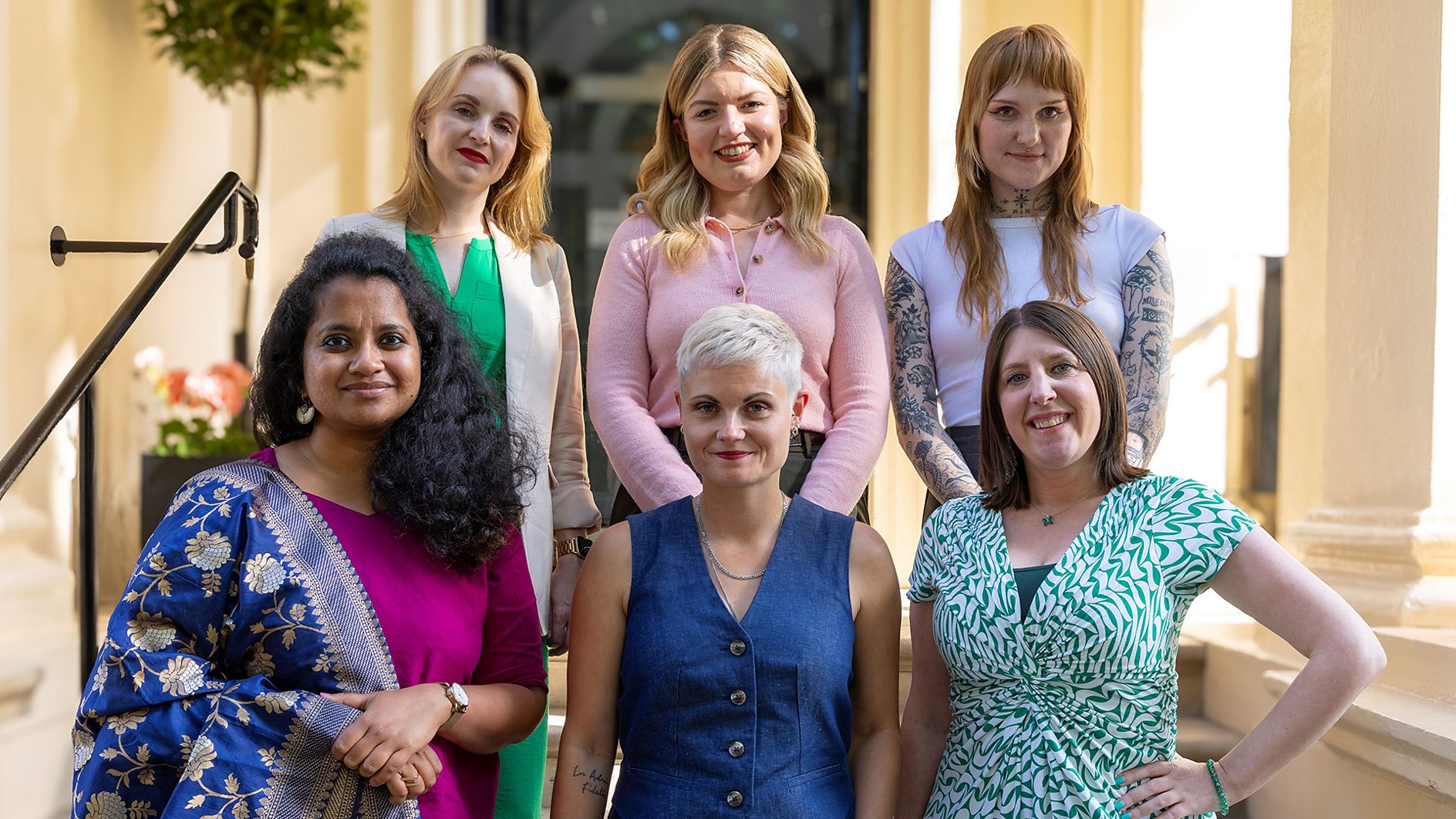
Reetika Subramanian is named one of six New Generation Thinkers by the BBC and the UKRI Arts and Humanities Research Council.
As the biggest speech radio station in the UK, Radio 4 is thrilled to introduce six brilliant early-career academics to such a broad audience. Their commitment to reaching the wider public with their research will enrich Radio 4’s programming, delivering new perspectives that inspire and challenge
Matthew Dodd
Gates Cambridge Scholar Reetika Subramanian has been selected as one of six early years researchers in the 2025 New Generation Thinkers cohort.
The scheme, which is supported by the UKRI Arts and Humanities Research Council (AHRC) and the BBC, aims to identify outstanding academics and help them bring their research ideas to a broader audience on BBC radio. Selected from hundreds of applicants, the New Generation Thinkers will collaborate with four Radio 4 teams across the UK, who work on programmes such as Free Thinking and Thinking Allowed, weekly science programmes, Front Row and Woman’s Hour.
Reetika [2019], who did her PhD in Multidisciplinary Gender Studies, is the creator of Climate Brides, a multimedia project and podcast investigating how climate change is deepening the drivers of child marriage in South Asia.
Her current work as Senior Research Associate at the School of Global Development at the University of East Anglia, explores why people move, who stays behind, and how marriage, labour, and climate change shape these choices. Reetika, a journalist in India before she did her PhD, works at the intersection of academic research and creative storytelling – drawing on podcasts, comics and women’s work songs to surface grounded, everyday narratives.
Matthew Dodd, Commissioning Editor, Arts, BBC Radio 4, says: “As the biggest speech radio station in the UK, Radio 4 is thrilled to introduce six brilliant early-career academics to such a broad audience. Their commitment to reaching the wider public with their research will enrich Radio 4’s programming, delivering new perspectives that inspire and challenge.”
Professor Christopher Smith, AHRC Executive Chair says: “New Generation Thinkers communicate fascinating ideas to the public, expanding our cultural, social and philosophical horizons while prompting important conversations.
“With subjects as diverse as climate change, war and healthcare, and methodologies as varied as film making and storytelling, these early careers researchers will explore important ideas that have shaped, and continue to shape, our world.
“I look forward to see what these six brilliant, original thinkers can produce with the resources of the BBC at their fingertips.”
The New Generation Thinker scheme has been running since 2011 with over 100 academics having passed through it, including fellow Cambridge researchers Preti Taneja and Diarmuid Hester, who have gone on to publish for broad audiences outside of academia.
*Reetika will be taking part in the penultimate episode of the Gates Cambridge podcast So, now what? in July.
**Picture courtesy of BBC












